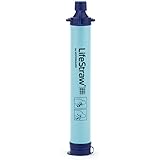What is a NOSI and how do I know if one was placed on my home?

Now that the Ontario government has announced its plans to do away with Notices of Security Interest, some residents may be scratching their heads as to what exactly a NOSI is and if their home is affected.
Similar to a lein, a NOSI was once a legitimate legal tool that has since been exploited by scammers who leverage the financing or leasing of home appliances like furnaces, air conditioning units, and water heaters against the title of a home to get paid.
What’s more, homeowners are often unaware that the NOSI on their property even exists until they sell or refinance their home. When they do make the discovery, in some cases, they owe tens of thousand of dollars to the company that installed the appliance in the first place.
Earlier this week, Ontario’s Minister of Public and Business Service Delivery said he was aware of $1 billion worth of NOSIs recorded in the province and vowed to scrap the tool – and all past notices – in forthcoming legislation.
While the bill itself is set to be passed sometime in the spring, Ontario homeowners may have questions about NOSIs right now. That’s why CTV News Toronto spoke with Bob Aaron, a Toronto-based real estate lawyer, to get some answers.
What is a NOSI exactly?
Before the tool was exploited, NOSIs were used by “legitimate businesses” in the past, Aaron told CTV News Toronto in a recent interview.
“[They were] selling furnaces and air conditioners and similar items to homeowners. And it was to secure payment. It was sort of like a mini mortgage.”
Where did things go wrong?
Since then, Aaron said, the province has seen “a lot of bad actors” who scam innocent homeowners out of a large amounts of money by forcing them to pay up when they try to sell or re-finance their home.
“So you might have a $5,000 furnace, but the suppliers register a Notice of Security Interest on title and they want $25,000 to $30,000 to pay it off because they capitalize all the interest for the next 20 years,” he said.
“Then they say to the homeowner, ‘You can’t sell your house unless we get paid, and you’re gonna have to prepay 20 years of interest, so give us $30,000.’”
How do I know if I have a NOSI?
There is only one way to know if there is a NOSI on your home.
“The only way [to check] is to call a real estate lawyer and say, ‘Can you please search my title and check if it’s on there?’ You would only do that if you recently bought an air conditioner or a furnace, some big ticket item that you signed a lot of papers for and you’re not sure what’s in them,” he said.
I think I have a NOSI on my title and I’m planning to sell my home. What now?
Assuming the government makes good on its promise to scrap NOSIs retroactively, Aaron said homeowners previously only had two options to settle a notice on their title: negotiate or payout.
In the past, negotiating your way out of a NOSI was not easy, Aaron said, especially if the sale of your home is fast approaching.
“If your deal is closing tomorrow or the next day, it becomes very, very difficult and the suppliers say, ‘No. We know you’re in trouble. We know you’ve got to close and you’re gonna have to pay us.’”
In some past cases, Aaron said homeowners have told their lawyers to go to court and fight the NOSI, but he warns that is a costly endeavour.
I want to see if I have a NOSI on my home, but don’t want to pay for a title search. What should I do?
If you’re a homeowner and curious about any outstanding NOSIs on your home, but don’t want to pay a real estate lawyer to look up your title, Aaron advises property owners to take a wait-and-see approach.
“If the government changes the law and retroactively removes all these [NOSIs] from title, thousands and thousands across the province, then it’ll be done at no charge to the homeowners.”
View original article here Source









